Results for “grammar tips”
Search
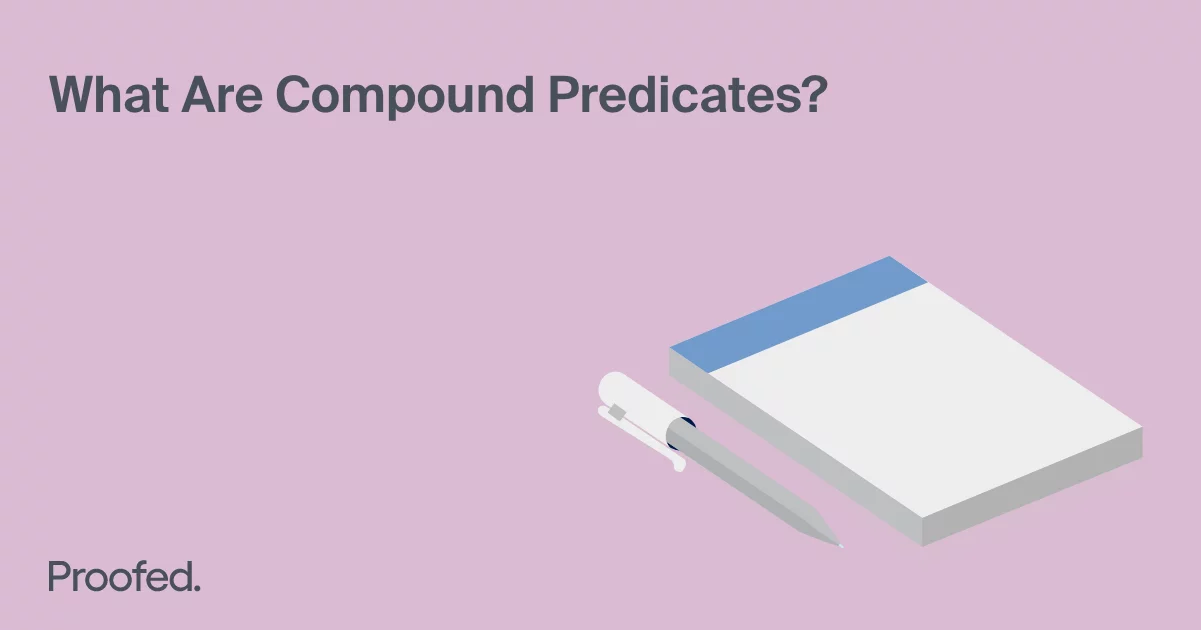
4-minute read
Grammar Tips: What Are Compound Predicates?
...try breaking it down into two distinct sentences. Proofreading for Grammar We hope this post has explained the basics of compound predicates for you. If you’d like any further help with your writing from our grammar experts, though, why not try our proofreading services? Upload a free 500-word trial document...
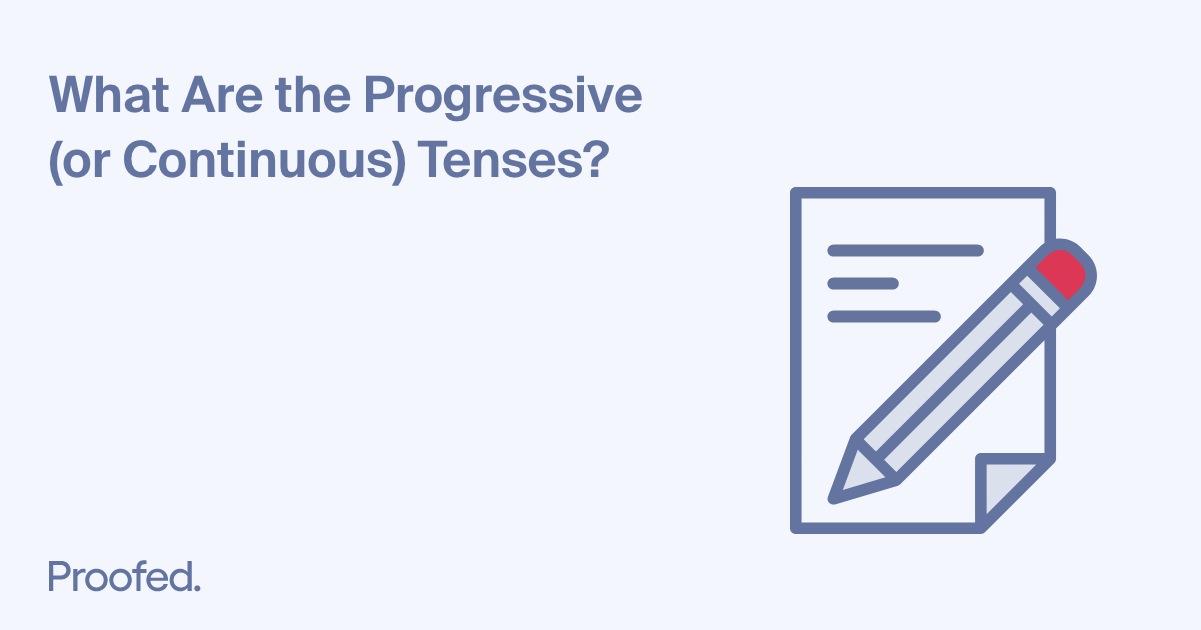
4-minute read
Grammar Tips: A Quick Guide to the Progressive Tenses
...form of “have been” with a present participle. Proofreading for Grammar Hopefully, our quick guide will help you use the progressive tenses with confidence. But if you would like a little extra help with your grammar, our proofreaders are experts. Why not submit a free trial document for proofreading today?...
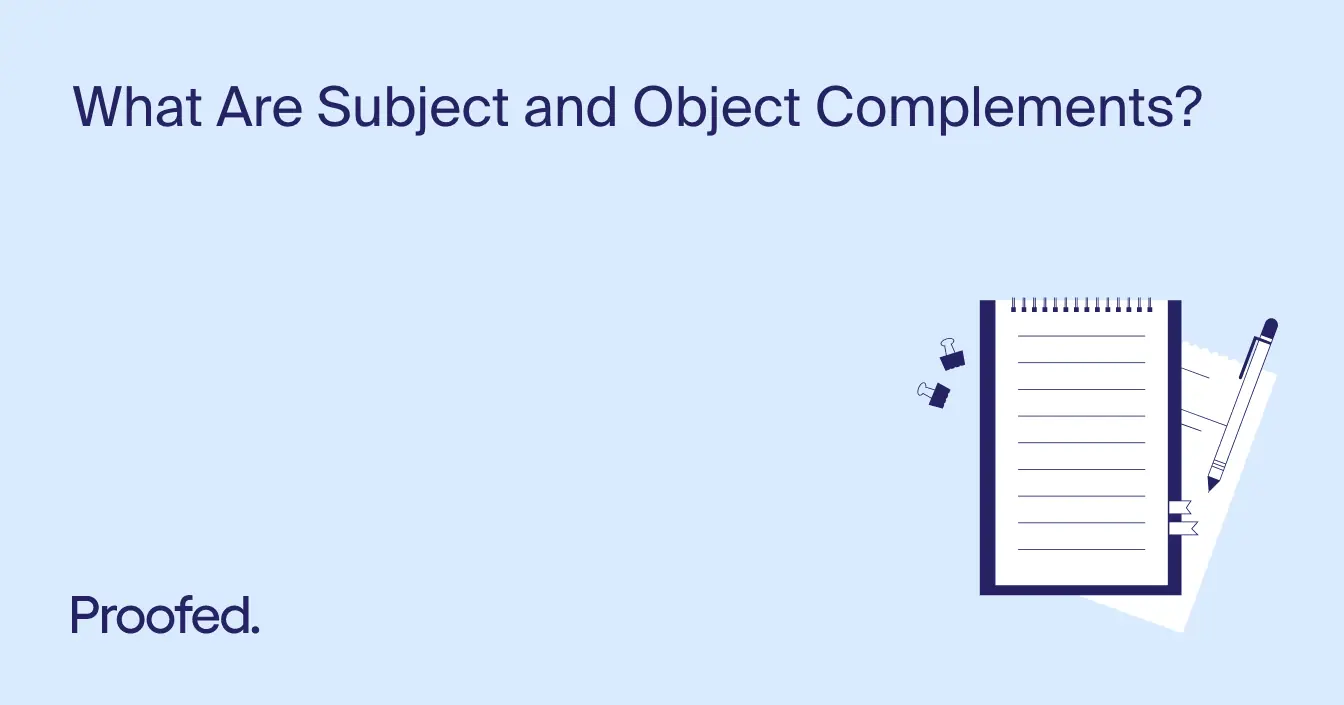
3-minute read
Grammar Tips: Subject and Object Complements
In grammar, a complement is a word or group of words that completes something. Many phrases and clauses need a complement to make sense. As such, knowing how subject and object complements work can help you to write clearly. Subject Complements A subject complement follows a linking verb in a...

3-minute read
Grammar Tips: What’s an Interjection?
...em dashes: Ugh, I wish I could go to bed right now. Whoa – this soup is so good. We can also follow the interjection with a question mark if the sentence is expressing confusion or curiosity: What? I thought you were bringing the cake. Grammar Rules for Using Interjections...

4-minute read
Grammar Tips: The Vocative Case
...How Do You Form the Vocative Case? There are two main elements to forming the vocative case: 1. Grammar Always use a noun or noun phrase to identify who or what is being addressed. This word or phrase is the vocative. Consider these two sentences: Stop looking at your phone!...

3-minute read
Grammar Tips: Relative Clauses
Relative clauses, also sometimes called adjective clauses, are phrases that add more information to the subject or object of a sentence. Sometimes this information is necessary to understand the sentence, and sometimes it’s just extra. Understanding how relative clauses work is an important part of English grammar. Check out our...
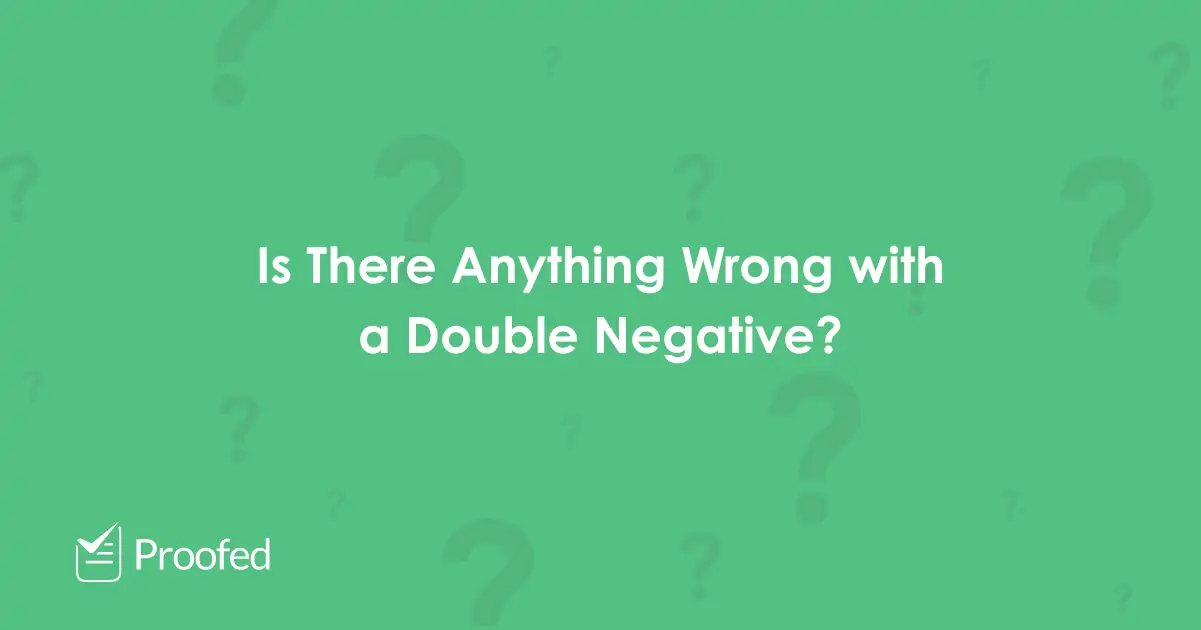
3-minute read
Grammar Tips: Double Negatives
We’re not saying grammar isn’t easy, but it isn’t uncomplicated either. And if you struggled to follow that sentence, it’s because we packed it with double negatives. Generally, you should avoid these in writing to ensure clarity. But not all double negatives are wrong, as we will now explain. Double...
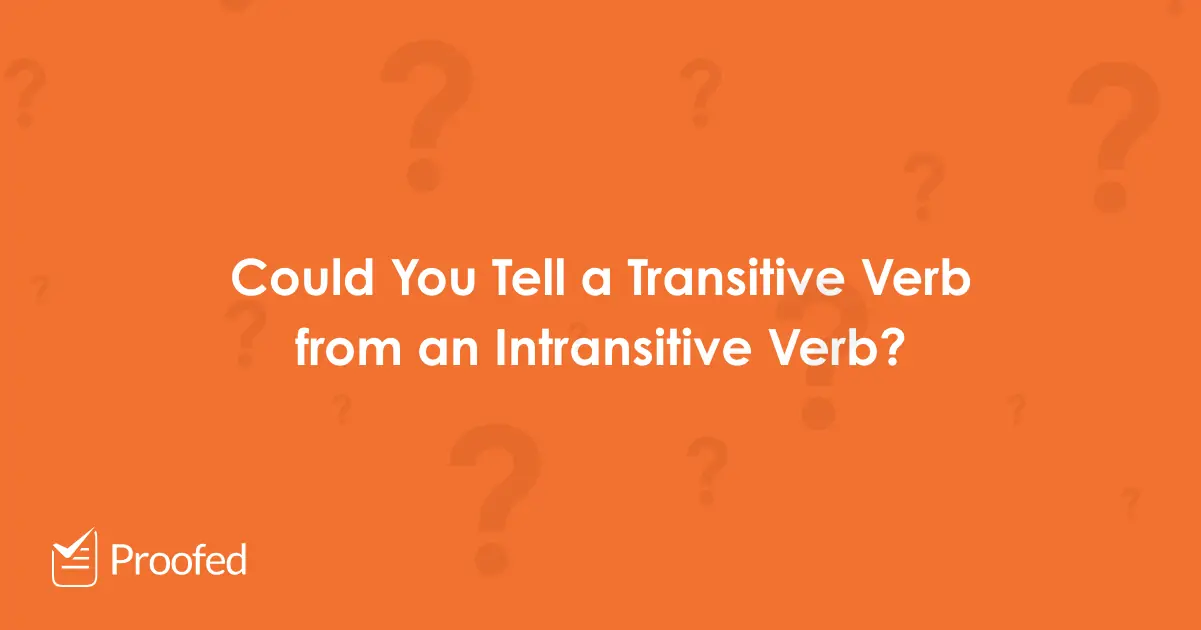
3-minute read
Grammar Tips: Transitive and Intransitive Verbs
...whether a verb can be used transitively or intransitively, so you can check any term you use in your own writing to make sure it can take an object (or be used without one). And if you need a grammar expert to review your work, we’re always here to help....
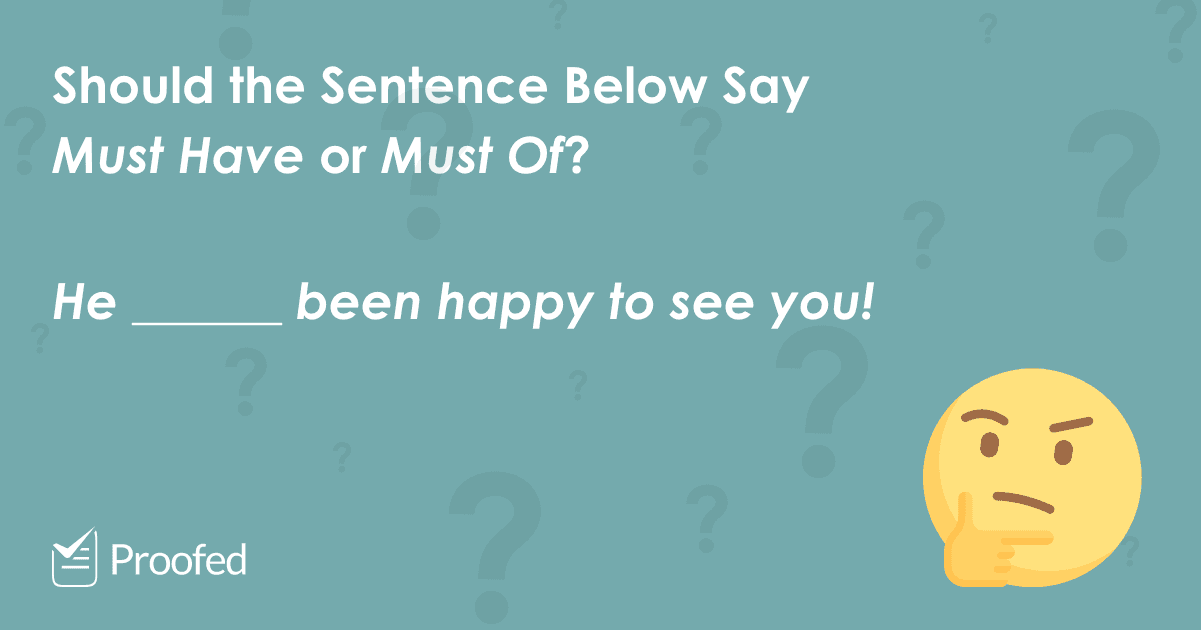
2-minute read
Grammar Tips: Must Have or Must Of?
...“Must of” is almost always a mistake. As such, if you’re tempted to use “must of” in your writing, you should make sure you don’t mean “must have” instead. And if you would like any more help with the grammar or spelling in a document, don’t forget that we have...
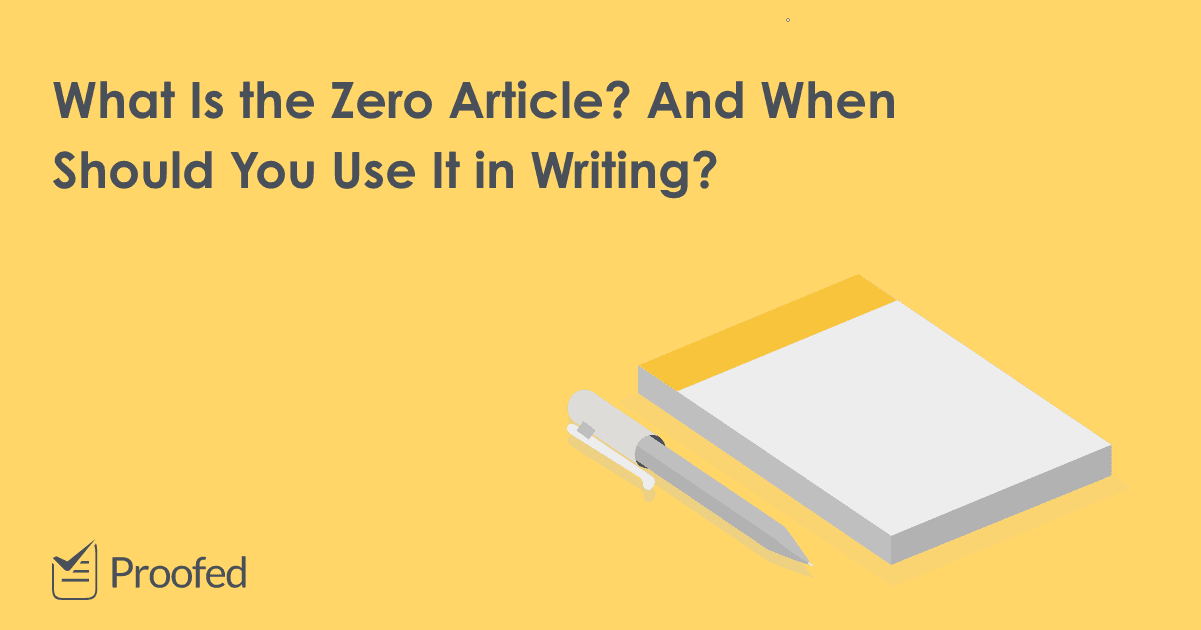
5-minute read
Grammar Tips: Understanding the Zero Article
...six. I marked page 44 for you. Expert Grammar Proofreading As you can see, the zero article can be quite tricky to master! For more guidance, check out our common ESL writing errors guide. It can also help to have a fluent English speaker check your writing. Our expert proofreaders, for example,...
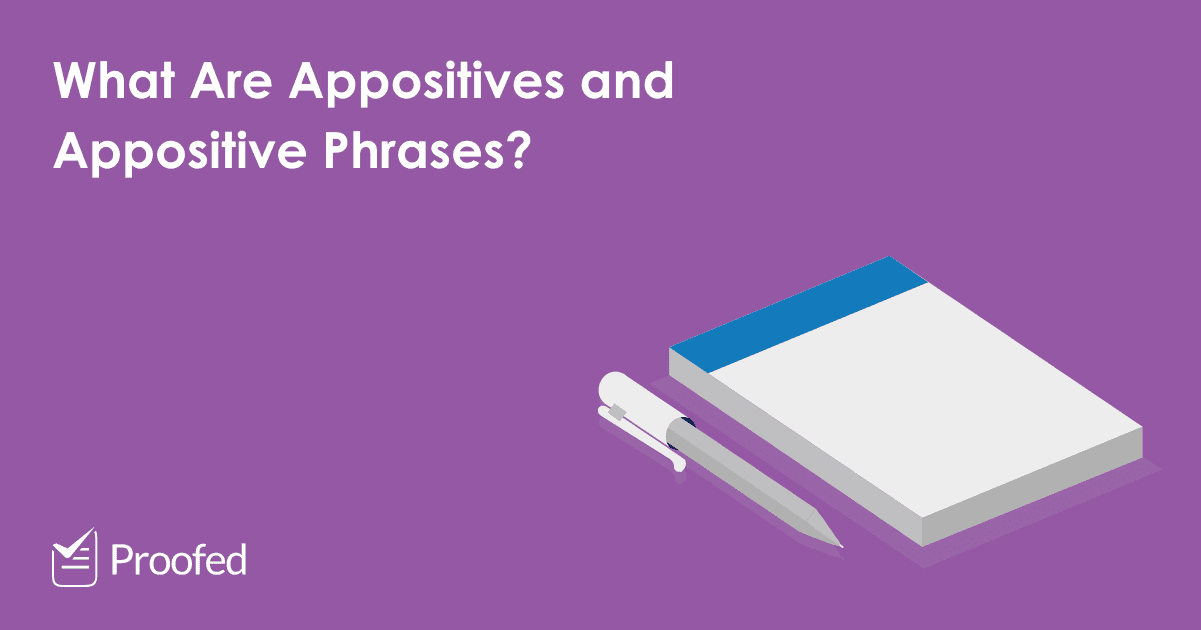
4-minute read
Grammar Tips: Appositives and Appositive Phrases
...noun they modify. If you could remove an appositive without changing the meaning of a sentence, it should be set apart with commas, dashes, or brackets. And don’t forget that our expert editors and proofreaders are always happy to check your punctuation, grammar, or any other aspect of your writing....
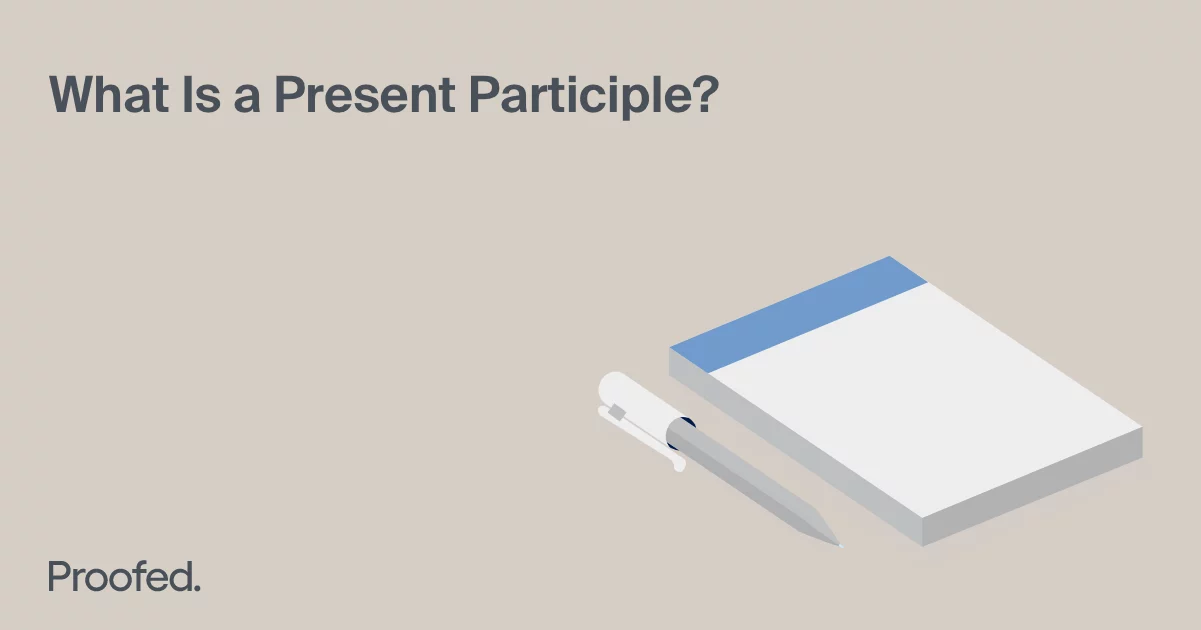
3-minute read
Grammar Tips: What Is a Present Participle?
Present participles are a key part of English grammar. But what exactly is a present participle? And when do you need one? In this post, we’ll explain the basics. What Is a Present Participle? Present participles are a type of verb. Most are formed by adding “-ing” the end of...




